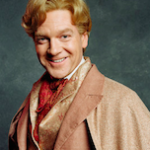Kenneth Branagh talks “Cinderella”

Feb 08, 2015
News
Kenneth Branagh (Professor Gilderoy Lockhart) is the director of Disney’s upcoming live-action Cinderella. In a recent interview with The Hollywood Reporter, Mr. Branagh talked of his fairytale. He wanted to emphasize that this classic children’s story was “not about a man saving a woman,” almost echoing his Harry Potter co-star, Emma Watson, on the strength and equality of women and women characters. Mr. Branagh also discussed media in light of recent events at Charlie Hebdo and the release of The Interview. Segments of the interview can be read below, the rest can be read here.
Was making Cinderella something of a departure for you?
The fairy tale element was a surprise to me in that, although I’ve read them and enjoyed them, I didn’t ever think this was a subject I was likely to make a film about. But when you go back to the original source material, you become aware of how all-pervasive this Cinderella myth is. How many times do you read about “the Cinderella story,” the story of the underdog, the story of the ordinary human being, often subjected to cruelty and ignorance and neglect, who somehow triumphs?
How much did you deviate from the original Disney cartoon?
The animation actually took a number of liberties with the original story, which of course has been told and retold across every type of culture, with different names and even different types of cruelty. There are some in which the stepsisters cut their toes off in order to force their feet into the slipper. What we put front and center was a level of reality and psychological truth in the performances that would be surprising in the context of a fairy tale.
Have you tried to modernize Cinderella for the current generation?
The first time we meet the grown-up Cinderella, she’s reading a book; she isn’t just scrubbing the steps. She’s already intellectually stimulated. And she makes a decision to try and understand the cruelty and the ignorance of her stepmother and stepsisters. We see a strength of character that is sort of a form of nonviolent resistance. And she meets the prince way ahead of the ball, before she decides to fall for him. They get to know each other and the seeds of a romance are sewn in terms of equality. It’s not about a man rescuing a woman.
Following Charlie Hebdo and The Interview, do you think the entertainment industry should hold back when it comes to potentially controversial material or go at it?harder?
I think what you’re always looking for as artists is to be honest, and to continue to be honestly driven by that which you are passionately engaged with. It should need not be forced. One of the reasons I work in the classics is that all sorts of issues which are universal and timeless can be addressed in that way, and I think all artists have to find their way to it. Some wish to be more directly provocative. But they need to do so honestly and not from a position of either fear or desire to react in some abnormal or extreme way. “To thine own self be true” is what Shakespeare has us hear in Hamlet, and as artists, that’s what you’ve got to do.


